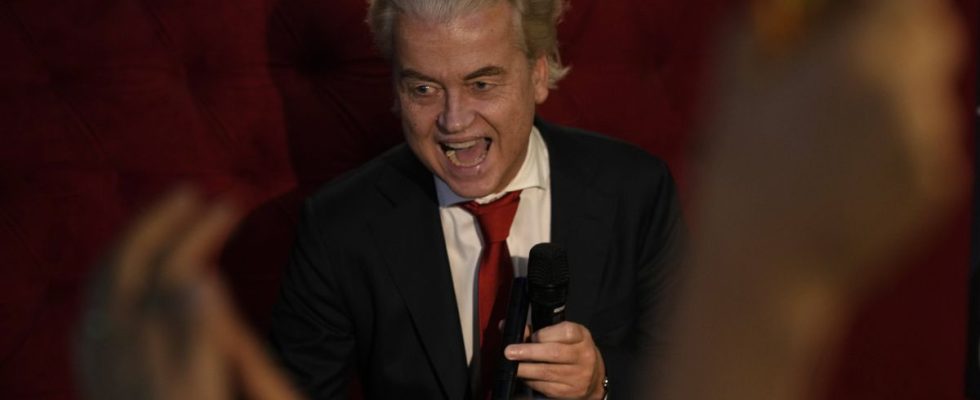Geert Wilders’ far-right Islamophobic Dutch party won parliamentary elections on Wednesday, exit polls suggest, in a political earthquake that will be felt well beyond the Netherlands’ borders.
The PVV (Freedom Party) won 35 seats and a comfortable electoral victory, according to the Ipos poll. Frans Timmermans’ left-wing alliance is second with 26 seats. The center-right VVD won 23 seats, according to the poll.
If confirmed by the final results, Wilders’ victory marks a sudden shift to the right which will be greeted with apprehension in Brussels: the PVV has notably promised a referendum on the accession of the Netherlands to the European Union. “It may not be what other parties in Europe or other countries are looking for, but hey, that’s democracy,” the 60-year-old politician said after voting.
His anti-immigration message, including closing borders and deporting illegal immigrants, appears to have resonated with Dutch voters. But if Wilders seems to have triumphed in the polls, it is not certain that he will succeed in forming a government coalition.
Far-right leader Geert Wilders called on other Dutch parties to work together to form a coalition, stressing that his PVV (Freedom Party) “can no longer be ignored.” “The Dutch hope that the people can reclaim their country and that we will ensure that the tsunami of asylum seekers and immigration is reduced,” Wilders told his enthusiastic supporters in The Hague.
“Constitutional impasse”
The leaders of the other three main parties have assured that they will not participate in a coalition led by the PVV. Kate Parker, of the Economist Intelligence Unit, said it would lead to a “constitutional impasse” in the EU’s fifth-largest economy.
Geert Wilders and his peroxide mane have been in the Dutch political landscape for decades. Not hesitating to call Moroccans “scum” or to propose caricature contests of the Prophet Muhammad, Wilders has built his career on a crusade against what he calls an “Islamic invasion” of the West.
Neither the troubles with the Dutch justice system – which found him guilty of insulting Moroccans – nor the death threats against him – which have kept him under police protection since 2004 – have discouraged him.
“I do not regret having fought for freedom,” Wilders told AFP in an interview on the eve of the 2021 elections. “Of course, I take a stand, I am attacked, my country is attack. Wilders, who tried to smooth out some of his populist rhetoric and focus on other concerns of voters, ended up exceeding expectations.
There are “more important problems than fighting the flood of asylum seekers and immigrants”, he said during one of the last election debates, adding that he was ready to put side his opinions on Islam to govern. If immigration remained a key subject of the campaign, the Dutch are even more worried about “knowing whether they still have more money left in their wallets”, he insisted.
He promised to focus more on “security and health care” than his opposition to Islam. He assured journalists in The Hague after voting that he would be Prime Minister for “everyone in the Netherlands, regardless of their religion, their origin, their gender or anything else”.

